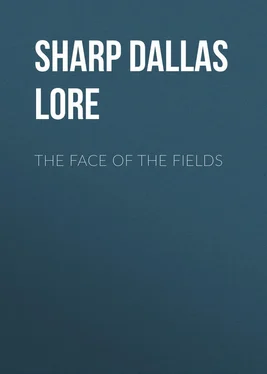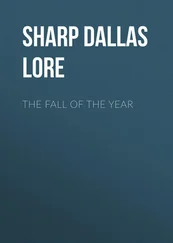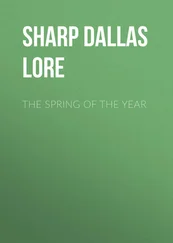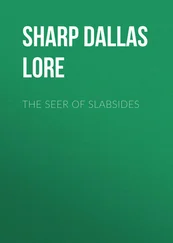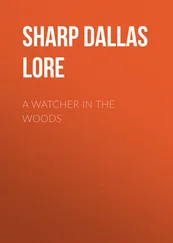Dallas Sharp - The Face of the Fields
Здесь есть возможность читать онлайн «Dallas Sharp - The Face of the Fields» — ознакомительный отрывок электронной книги совершенно бесплатно, а после прочтения отрывка купить полную версию. В некоторых случаях можно слушать аудио, скачать через торрент в формате fb2 и присутствует краткое содержание. Жанр: Природа и животные, foreign_antique, foreign_prose, на английском языке. Описание произведения, (предисловие) а так же отзывы посетителей доступны на портале библиотеки ЛибКат.
- Название:The Face of the Fields
- Автор:
- Жанр:
- Год:неизвестен
- ISBN:нет данных
- Рейтинг книги:5 / 5. Голосов: 1
-
Избранное:Добавить в избранное
- Отзывы:
-
Ваша оценка:
- 100
- 1
- 2
- 3
- 4
- 5
The Face of the Fields: краткое содержание, описание и аннотация
Предлагаем к чтению аннотацию, описание, краткое содержание или предисловие (зависит от того, что написал сам автор книги «The Face of the Fields»). Если вы не нашли необходимую информацию о книге — напишите в комментариях, мы постараемся отыскать её.
The Face of the Fields — читать онлайн ознакомительный отрывок
Ниже представлен текст книги, разбитый по страницам. Система сохранения места последней прочитанной страницы, позволяет с удобством читать онлайн бесплатно книгу «The Face of the Fields», без необходимости каждый раз заново искать на чём Вы остановились. Поставьте закладку, и сможете в любой момент перейти на страницу, на которой закончили чтение.
Интервал:
Закладка:
But am I not generalizing from the single case of the fox and hounds? or at most from two cases – the hen and the hawk? And are not these cases far from typical? Fox and hound are unusually matched, both of them are canines, and so closely related that the dog has been known to let a she-fox go unharmed at the end of an exciting hunt. Suppose the fox were a defenseless rabbit, what of fear and terror then?
Ask any one who has shot in the rabbity fields of southern New Jersey. The rabbit seldom runs in blind terror. He is soft-eyed, and timid, and as gentle as a pigeon, but he is not defenseless. A nobler set of legs was never bestowed by nature than the little cotton-tail’s. They are as wings compared with the deformities that bear up the ordinary rabbit hound. With winged legs, protecting color, a clear map of the country in his head, – its stumps, rail-piles, cat-brier tangles, and narrow rabbit-roads, – with all this as a handicap, Bunny may well run his usual cool and winning race. The balance is just as even, the chances quite as good, and the contest as interesting, to him as to Reynard.
I have seen a rabbit squat close in his form and let a hound pass yelping within a few feet of him, but as ready as a hair-trigger should he be discovered. I have seen him leap for his life as the dog sighted him, and bounding like a ball across the stubble, disappear in the woods, the hound within two jumps of his flashing tail. I have waited at the end of the wood-road for the runners to come back, down the home-stretch, for the finish. On they go for a quarter, or perhaps half a mile, through the woods, the baying of the hound faint and intermittent in the distance, then quite lost. No, there it is again, louder now. They have turned the course. I wait.
The quiet life of the woods is undisturbed, for the voice of the hound is only an echo, not unlike the far-off tolling of a slow-swinging bell. The leaves stir as a wood-mouse scurries from his stump; an acorn rattles down; then in the winding wood-road I hear the pit-pat, pit-pat , of soft furry feet, and there at the bend is the rabbit. He stops, rises high up on his haunches, and listens. He drops again upon all fours, scratches himself behind the ear, reaches over the cart-rut for a nip of sassafras, hops a little nearer, and throws his big ears forward in quick alarm, for he sees me, and, as if something had exploded under him, he kicks into the air and is off, – leaving a pretty tangle for the dog to unravel later on, by this mighty jump to the side.
My children and the man were witnesses recently of an exciting, and, for this section of Massachusetts, a novel race, which, but for them, must certainly have ended fatally. The boys had picked up the morning fall of chestnuts, and were coming through the wood-lot where the man was chopping, when down the hillside toward them rushed a little chipmunk, his teeth a-chatter with terror, for close behind him, with the easy wavy motion of a shadow, glided a dark brown animal, which the man took on the instant for a mink, but which must have been a large weasel or a pine marten. When almost at the feet of the boys, and about to be seized by the marten, the squeaking chipmunk ran up a tree. Up glided the marten, up for twenty feet. Then the chipmunk jumped. It was a fearfully close call. The marten did not dare to jump, but turned and started down, when the man intercepted him with a stick. Around and around the tree he dodged, growling and snarling and avoiding the stick, not a bit abashed, stubbornly holding his own, until forced to seek refuge among the branches. Meanwhile the terrified chipmunk had recovered his nerve and sat quietly watching the sudden turn of affairs from a near-by stump.
I climbed into the cupola of the barn this morning, as I frequently do throughout the winter, and brought down a dazed junco that was beating his life out up there against the window-panes. He lay on his back in my open hand, either feigning death or really powerless with fear. His eyes were closed, his whole tiny body throbbing convulsively with his throbbing heart. Taking him to the door, I turned him over and gave him a gentle toss. Instantly his wings flashed, they zigzagged him for a yard or two, then bore him swiftly around the corner of the house and dropped him in the midst of his fellows, where they were feeding upon the lawn. He shaped himself up a little and fell to picking with the others.
From a state of collapse the laws of his being had brought the bird into normal behavior as quickly and completely as the collapsed rubber ball is rounded by the laws of its being. The memory of the fright seems to have been an impression exactly like the dent in the rubber ball – as if it had never been.
Yet the analogy only half holds. Memories of the most tenacious kind the animals surely have; but little or no voluntary, unaided power to use them. Memory is largely a mechanical, a crank process with the animals, a kind of magic-lantern show, where the concrete slide is necessary for the picture on the screen; else the past as the future hangs a blank. The dog will sometimes seem to cherish a grudge; so will the elephant. Some one injures or wrongs him, and the huge beast harbors the memory, broods it, and waits his opportunity for revenge. Yet the records of these cases usually show the creature to be living with the object of his hatred – keeper or animal – and that his memory goes no further back than the present moment, than the sight of the enemy; memory always taking an immediate, concrete shape.
At my railroad station I frequently see a yoke of great sleepy, bald-faced oxen, that look as much alike as two blackbirds. Their driver knows them apart; but as they stand there bound to one another by the heavy bar across their foreheads, it would puzzle anybody else to tell Buck from Berry. But not if he approach them wearing an overcoat. At sight of me in an overcoat the off ox will snort and back and thresh about in terror, twisting the head of his yoke-fellow, nearly breaking his neck, and trampling him miserably. But the nigh ox is used to it. He chews and blinks away placidly, keeps his feet the best he can, and doesn’t try to understand at all why great-coats should so frighten his cud-chewing brother. I will drop off my coat and go up immediately to smooth the muzzles of both oxen, blinking sleepily while the lumber is being loaded on.
Years ago, the driver told me, the off ox was badly frightened by a big woolly coat, the sight or smell of which suggested to the creature some natural enemy, a panther, perhaps, or a bear. The memory remained, but beyond recall except in the presence of its first cause, the great-coat.
To us, and momentarily to the lower animals, no doubt, there is a monstrous, a desperate aspect to nature – night and drouth and cold, the lightning, the hurricane, the earthquake: phases of nature that to the scientific mind are often appalling, and to the unthinking and superstitious are usually sinister, cruel, personal, leading to much dark talk of banshees and of the mysteries of Providence – as if there were still necessity to justify the ways of God to man! We are clutched by these terrors even as the junco was clutched in my goblin hand. When the mighty fingers open, we zigzag, dazed from the danger; but fall to planning, before the tremors of the earth have ceased, how we can build a greater and finer city on the ruins of the old. Upon the crumbled heap of the second Messina the third will rise, and upon that the fourth, unless the quaking site is forever swallowed by the sea. Terror can kill the living, but it cannot hinder them from forgetting, or prevent them from hoping, or, for more than an instant, stop them from doing. Such is the law of being – the law of the Jungle, of Heaven, of my pastures, of myself, and of the little junco. The light of the sun may burn out, motion may cease, matter vanish away, and life come to an end; but so long as life continues it must continue to assert itself, to obey the law of being – to multiply and replenish the earth, and rejoice.
Читать дальшеИнтервал:
Закладка:
Похожие книги на «The Face of the Fields»
Представляем Вашему вниманию похожие книги на «The Face of the Fields» списком для выбора. Мы отобрали схожую по названию и смыслу литературу в надежде предоставить читателям больше вариантов отыскать новые, интересные, ещё непрочитанные произведения.
Обсуждение, отзывы о книге «The Face of the Fields» и просто собственные мнения читателей. Оставьте ваши комментарии, напишите, что Вы думаете о произведении, его смысле или главных героях. Укажите что конкретно понравилось, а что нет, и почему Вы так считаете.
